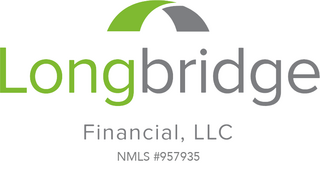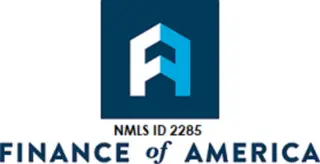Reverse Mortgages: What You Need to Know Before Signing Up
A reverse mortgage might sound like a great way to unlock the equity in your home without selling it, but is it really the right financial move? While these loans can provide retirees with much-needed cash flow, they also come with drawbacks that aren’t always advertised. Before making a decision, it’s essential to understand how reverse mortgages work, the risks involved, and why some financial experts advise against them.

Free quote and easy application process
- All HECM programs available
- A+ rating with the BBB and HUD approved direct lender and servicer

A+ rating with the BBB
- Competitive pricing on loans due to low overhead
- All products available - HECM adjustable, HECM fixed, & private jumbo

One of the Largest Reverse Mortgage Lenders in the Nation
- 94% Customer Satisfaction Rating and A+ BBB Accredited
- Support From Reverse Mortgage Professionals

Experienced loan officers available to assist
- FHA & HUD approved - direct lender
- Quick processing for expedited funding
How a Reverse Mortgage Works
A reverse mortgage is a type of home loan that allows homeowners aged 62 or older to convert part of their home’s equity into cash. Unlike a traditional mortgage, where you make monthly payments to a lender, a reverse mortgage pays you. The loan is repaid when the homeowner sells the home, moves out permanently, or passes away.
The most common type is the Home Equity Conversion Mortgage (HECM), which is insured by the Federal Housing Administration (FHA). Borrowers can receive the money in a lump sum, monthly payments, or a line of credit.
The 60% Rule in Reverse Mortgages
The 60% rule refers to a borrowing limit in the first year of a reverse mortgage. Borrowers cannot withdraw more than 60% of their total loan amount in the first year unless they need extra funds to pay off an existing mortgage or other mandatory obligations. This rule was introduced to prevent borrowers from depleting their equity too quickly and to ensure the loan lasts longer.
The Downsides of a Reverse Mortgage
While a reverse mortgage can provide financial relief, it comes with several significant drawbacks:
1. High Fees and Interest Rates
Reverse mortgages often have higher closing costs and interest rates than traditional home loans. These costs can eat into the value of your home over time. Additionally, since interest accumulates over the life of the loan, your total debt can grow rapidly.
2. Decreasing Home Equity
Each payment you receive adds to the loan balance, reducing the equity in your home. This can leave you with little to no inheritance for your heirs and limit your financial options if you need to move into assisted living later.
3. Risk of Foreclosure
Although reverse mortgages don’t require monthly payments, homeowners must still pay property taxes, homeowners insurance, and maintenance costs. If you fall behind on these expenses, you could face foreclosure.
4. Complicated Loan Terms
Reverse mortgages can be difficult to understand, and many borrowers don’t fully grasp the terms until it’s too late. The way interest compounds and how repayment works can be confusing, leading to surprises down the road.
5. Impact on Government Benefits
A reverse mortgage could affect Medicaid and Supplemental Security Income (SSI) eligibility. Since payments from a reverse mortgage can be considered income, it’s important to understand how they might impact your financial situation.
Why Banks and Financial Experts Don’t Recommend Reverse Mortgages
Even though reverse mortgages are a legitimate financial product, many banks no longer offer them or advise against them. Here’s why:
1. Reputation Risk
Banks prefer to avoid financial products that come with high risks and potential customer complaints. Reverse mortgages have been criticized for being complex and sometimes misleading. Banks don’t want to be associated with loans that could lead to financial hardship for seniors.
2. Strict Regulations
Reverse mortgages are subject to strict government rules, especially for FHA-insured loans. Many lenders don’t want to deal with the added regulatory burden.
3. Better Alternatives Exist
Banks often steer customers toward home equity loans or home equity lines of credit (HELOCs) instead of reverse mortgages. These alternatives offer better terms for borrowers who can afford monthly payments.
4. Loan Payoff Risks
Lenders know that reverse mortgage loans are only repaid when the borrower moves out or passes away, which means they might not get their money back for years. This long repayment period makes these loans less attractive to banks.
Alternatives to a Reverse Mortgage
If you’re considering a reverse mortgage, you may want to explore other financial options:
| Alternative | How It Works | Pros | Cons |
|---|---|---|---|
| Home Equity Loan | Borrow a lump sum against your home’s value. | Lower interest rates than reverse mortgages; fixed payments. | Requires monthly payments. |
| HELOC (Home Equity Line of Credit) | Borrow as needed, up to a set limit. | Flexible borrowing; lower interest than reverse mortgages. | Requires repayment; fluctuating interest rates. |
| Downsizing | Sell your home and move to a smaller, cheaper home. | Access home equity without borrowing; lower living costs. | Moving can be stressful; sentimental attachment to home. |
| Annuities | Convert savings into guaranteed income for life. | Provides a steady income stream. | Can be complex and may have high fees. |
| Renting a Part of Your Home | Rent out a room or part of your home for extra income. | Generates passive income without taking on debt. | Requires landlord responsibilities. |
Is a Reverse Mortgage Right for You?
A reverse mortgage can be a helpful tool for some retirees, but it’s not a one-size-fits-all solution. Before making a decision, consider:
- Your long-term financial goals. If you want to leave an inheritance, a reverse mortgage may not be the best choice.
- Your ability to keep up with home expenses. If you struggle with property taxes or maintenance, you could risk foreclosure.
- Your health and living situation. If you might need to move to assisted living, a reverse mortgage might not be worth it.
The Bottom Line
Reverse mortgages can provide short-term financial relief but come with significant risks. Understanding the costs, loan terms, and potential pitfalls can help you make an informed decision. If you’re considering a reverse mortgage, talk to a financial advisor to explore all your options.
Get Started Today
Getting More Money into YourPocket Starts With Your Inbox!
Create a free account with YourPocket, and get tools you need for financial freedom and control.
